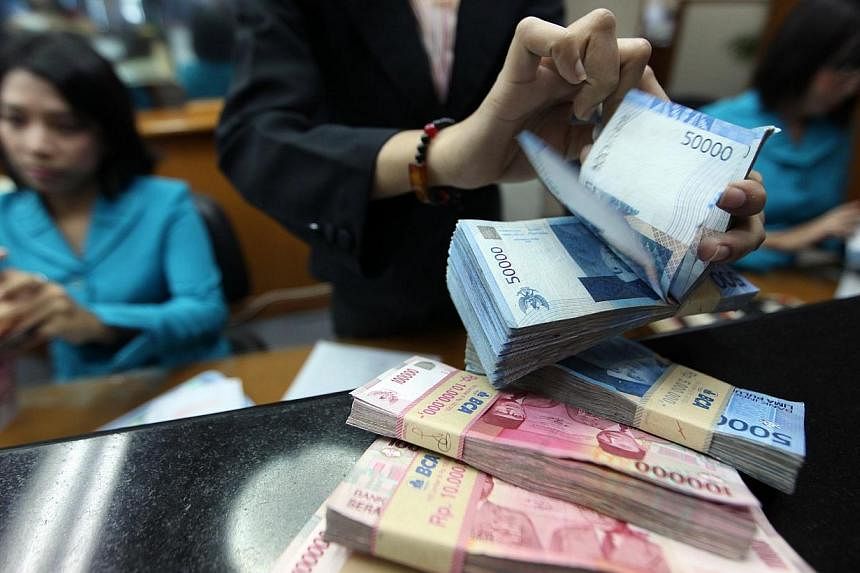JAKARTA (REUTERS) - Indonesia posted a small trade surplus in May as imports fell more than expected, helping to take some pressure off the fragile rupiah ahead of a presidential vote next week.
Southeast Asia's largest economy has been trying to curb strong consumption amid sliding exports to keep its current-account deficit from widening and hurting confidence.
The country's trade balance for May returned to surplus, a modest US$70 million (S$ 87 milliom) compared with expectations for US$410 million, but analysts said this was still a relief after the previous month's shock deficit.
"The fact that exports managed to outdo imports this time round comes at a very fortunate time, especially after April's hefty US$2 billion deficit," said Wellian Wiranto, economist at OCBC Bank in Singapore.
Exports in May fell 8.11 per cent from a year earlier, data from the statistics bureau showed on Tuesday, worse than a 5.94 per cent decline forecast in a Reuters poll. Annual imports in May dropped 11.43 per cent versus expectations for a 8.21 per cent fall.
The rupiah, Asia's worst performing currency last year, eased 0.3 per cent to 11,880 per dollar by 0750 GMT (3.50 pm Singapore time). Non-deliverable forwards were also weaker. The softer tone was attributed to the smaller-than-expected trade surplus and concerns over the outcome of the presidential election.
A patchy global recovery and weak commodity prices will likely weigh on the outlook for exports in the near term, while continuing pressures on Indonesia's trade and current accounts mean the authorities need to be watchful of inflation.
Indonesia will hold presidential elections on July 9, a day before its central bank meets to decide monetary policy. "Facing the increasingly thick atmosphere of uncertain anticipation ahead of next Wednesday's very close presidential election, this number (trade surplus) will be welcomed by the market," Wiranto said.
After surpluses in February and March, Indonesia's trade balance swung to a $1.96 billion deficit in April - the second biggest monthly one in five years, hit by a mineral export ban and weak commodity prices.
Annual inflation in June slowed to 6.70 percent from 7.32 percent in May, the data showed, but was near forecasts for 6.76 percent. On a month-on-month basis, CPI was up 0.43 percent.
Analysts mostly expect Bank Indonesia to keep rates unchanged but maintain a hawkish bias as it remains vigilant on inflation.
Bank Indonesia has indicated that it will continue to adopt a tight monetary policy at least until end of this year to help stabilise the rupiah and to lower the current-account deficit to under 3 percent of gross domestic product from 3.3 percent in 2013.
It has maintained its policy rate at 7.5 percent after increasing it by 175 basis points between June to November to support the rupiah.
An HSBC Markit purchasing managers' index survey on Tuesday showed manufacturing activity in Indonesia rose in June due to a rise in new orders on strong domestic activity, but export orders fell for the first time in six months. "Given the import-driven pressures on Indonesia's trade and current account deficits, such pick-up in domestic activity is not desirable at this juncture," said Su Sian Lim, economist at HSBC.

